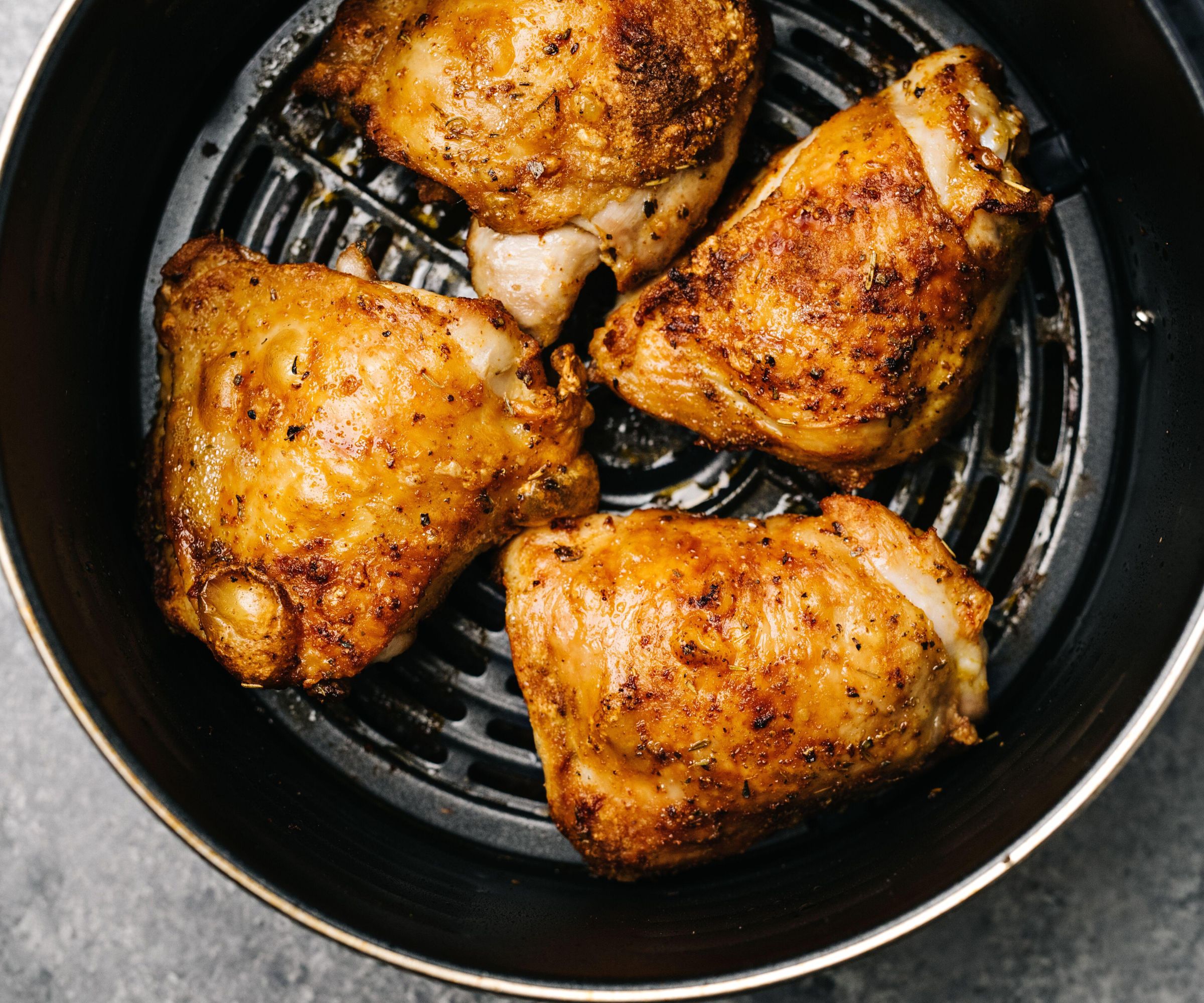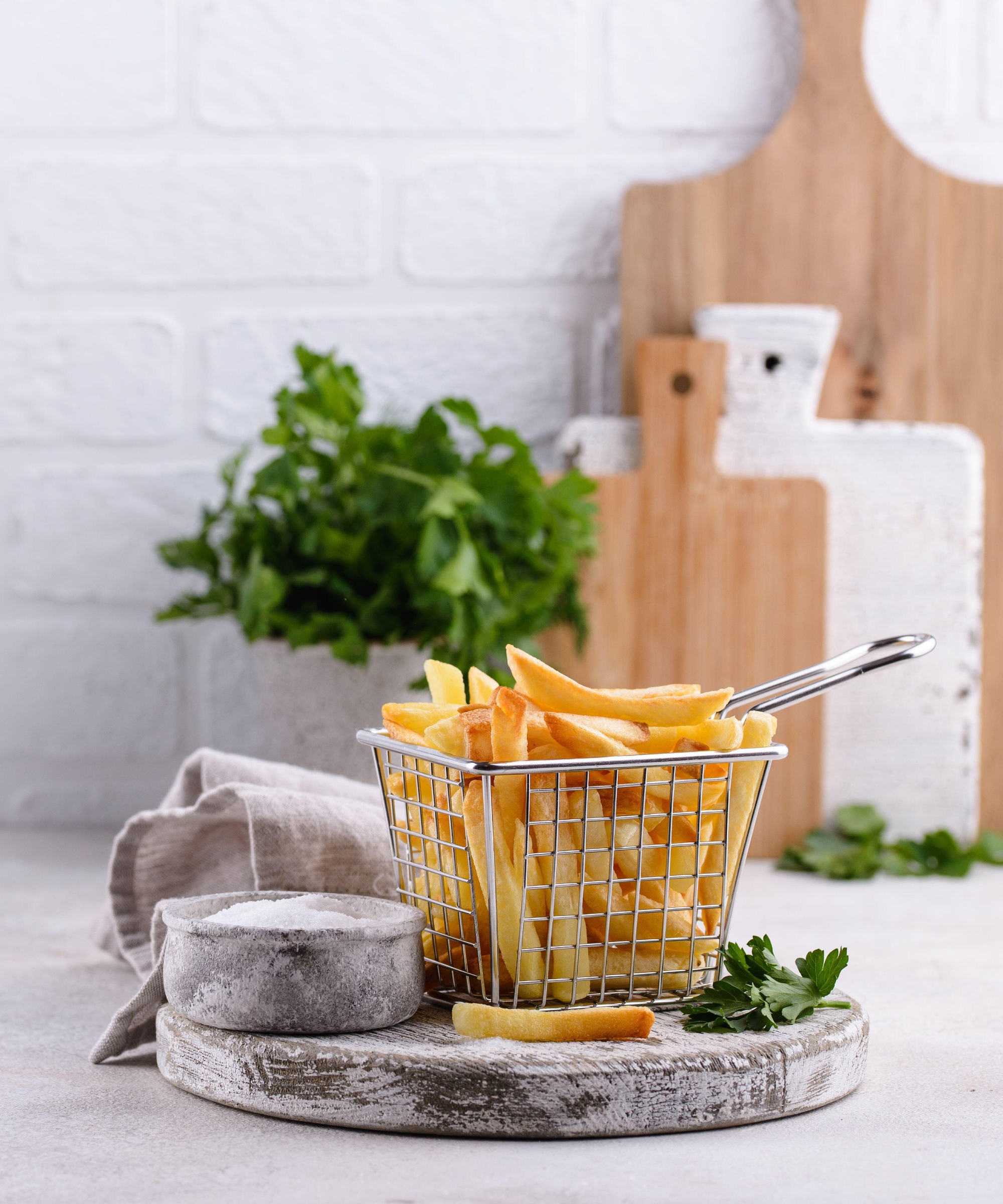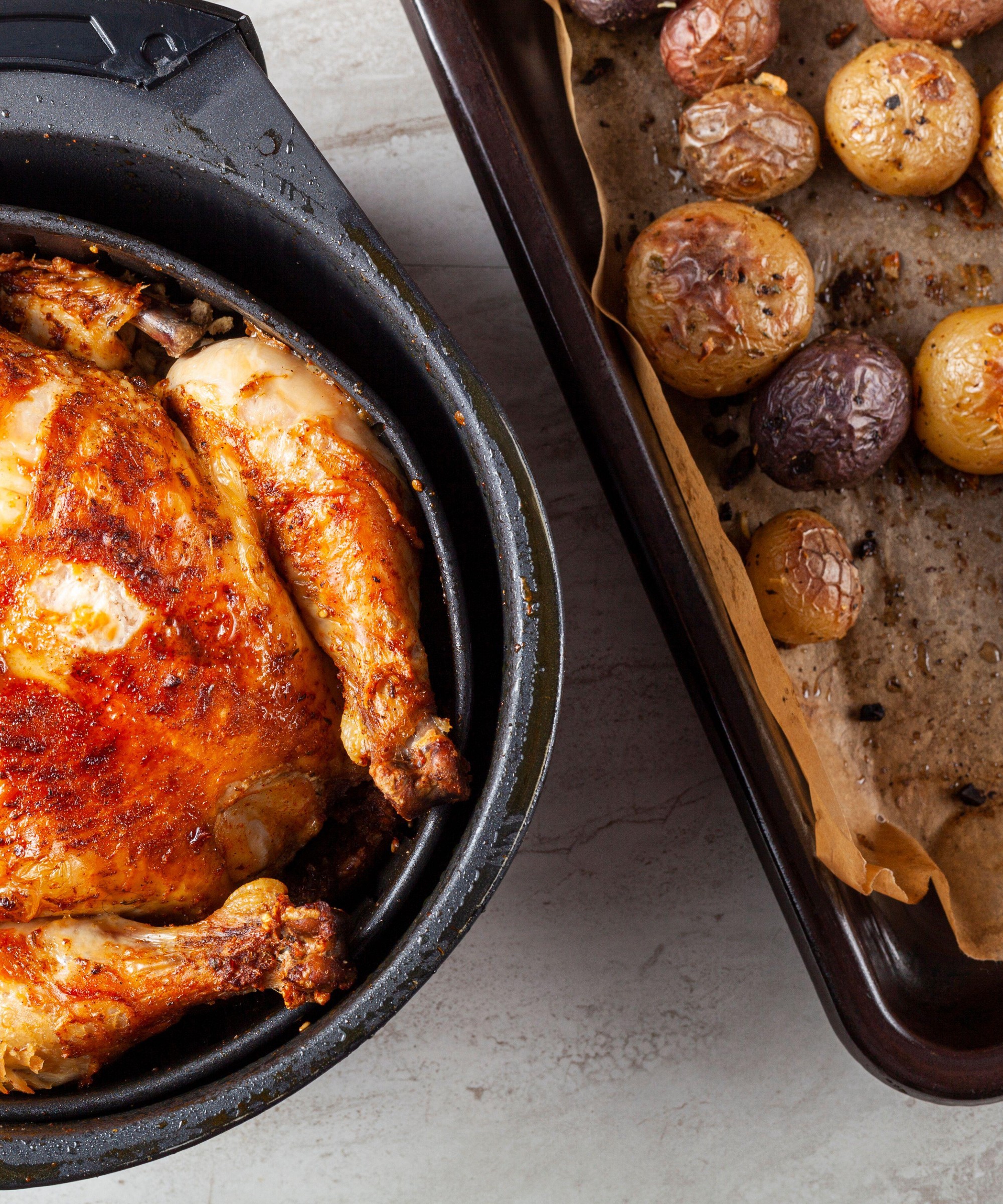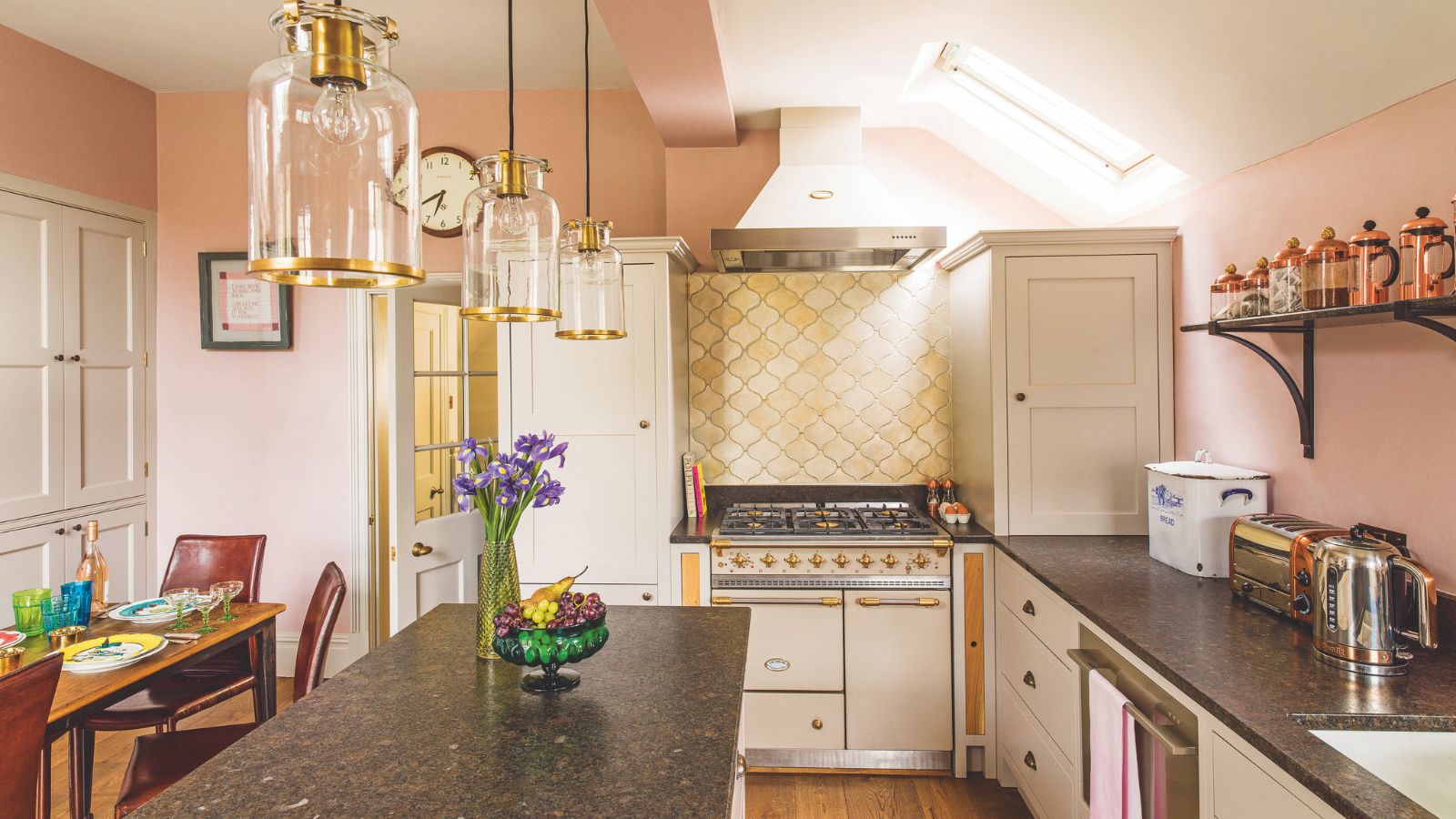Are air fryers energy efficient? Get the lowdown
Are air fryers energy efficient? Find out whether this favorite appliance is costly to own


With costs on the rise, we’re all conscious of how much we’re spending. Using the oven less is one way to save, but that can raise another question about the appliance many of us are opting for instead: are air fryers energy efficient?
The good news? The best air fryers are energy efficient. In other words, cooking with one of these can reduce energy bills compared to using the oven while still providing tasty meals and snacks for the household.
If you’ve been asking is it cheaper to cook with an air fryer, the answer is it can be, and that’s down to its energy efficiency. Here’s what you need to know.
Are air fryers energy efficient?

Air fryers have become a must-have kitchen appliance, and with the idea of saving money at home in mind, the trend has only grown. But to answer the question are air fryers energy efficient, it’s important to know a little more about electricity use in our homes (since that’s the fuel an air fryer uses), and then compare the energy needs of an air fryer with that of an oven, as it’s the swap you could make.
First of all, how much electricity does an American home use? According to the EIA (US Energy Information Administration), ‘In 2021, the average annual electricity consumption for a US residential utility customer was 10,632 kilowatt-hours (kWh), an average of about 886 kWh per month.’
How much of this might an air fryer account for? With an average wattage of 1kW, a 10-minute use gets through around 0.16kWh of energy. As for an oven, with a wattage of around 3kW, 20 minutes of use means about 1kWh of energy.
What does energy efficient mean?
There are some important things to know about air fryers before you buy, but with the goal of understanding whether air fryers are energy efficient it’s vital to ask first exactly what energy-efficient means.
‘Energy efficiency means using less energy to get the same job done,’ say the experts at Energy Star, the US government-backed symbol for energy efficiency. ‘Many products, homes, and buildings use more energy than they actually need, through inefficiencies and energy waste.’ Bottom line? Energy efficiency is one of the ways to cut energy bills.
So, are air fryers energy efficient? They definitely can be more energy efficient than an oven when it comes to cooking smaller portion sizes. Heating up a large oven cavity when you’re not planning to fill it with food wastes energy, no matter how energy efficient the oven itself is.
Air fryers can be more energy efficient in another way. They don’t tend to lose heat in the room because they heat up quickly, avoiding energy waste.
How to check an air fryer’s energy efficiency

While typical figures are useful, what’s important is being able to assess the energy efficiency of the air fryer you already own or the one you’re thinking about buying, so you can make informed decisions about energy use in your home.
‘Check the energy consumption in watts of an air fryer model,’ says Lucy Searle, global editor-in-chief of Homes & Gardens. ‘Then multiply this by the number of hours it’s used per day and divide by 1000. This is the kWh per day, so look at your energy supplier’s rate per kWh to calculate the usage cost.’
We include the wattage of air fryers in our reviews, such as the one for the Ninja Max XL Air Fryer and that for the Ninja Foodi DZ401 6-in-1 so you can compare the energy costs along with the capacity and features to decide which is the right model of air fryer for your kitchen.
Do air fryers use a lot of electricity?
Air fryers don’t use a lot of electricity. ‘The actual electricity use will depend on the model, so check the wattage when you’re selecting the model for your home,’ says Lucy Searle, global editor-in-chief of Homes & Gardens. ‘Of course, what’s also crucial in terms of the total amount of electricity used is how many hours (or fractions of an hour), you use it for per day.’
The takeaway? ‘As a rule, you’ll use less electricity by cooking with an air fryer rather than an oven,’ she says.
What uses the most electricity in a home?
As a proportion of your energy bill, it’s heating – water and space – and air conditioning that use the most electricity in a home, according to the EIA (US Energy Information Administration).
‘Lighting and refrigerators are used in nearly every home, and they are the next largest electricity end uses,’ the experts say. Cooking, meanwhile, accounted for 1.4 per cent of residential site electricity consumption by end use, 2015, EIA data shows.
Sign up to the Homes & Gardens newsletter
Design expertise in your inbox – from inspiring decorating ideas and beautiful celebrity homes to practical gardening advice and shopping round-ups.

Sarah is a freelance journalist and editor. Previously executive editor of Ideal Home, she’s specialized in interiors, property and gardens for over 20 years, and covers interior design, house design, gardens, and cleaning and organizing a home for Homes & Gardens. She’s written for websites, including Houzz, Channel 4’s flagship website, 4Homes, and Future’s T3; national newspapers, including The Guardian; and magazines including Future’s Country Homes & Interiors, Homebuilding & Renovating, Period Living, and Style at Home, as well as House Beautiful, Good Homes, Grand Designs, Homes & Antiques, LandLove and The English Home among others. It’s no big surprise that she likes to put what she writes about into practice, and is a serial house renovator.
-
 In season - 5 gorgeous daffodil arranging ideas you need to try for spring
In season - 5 gorgeous daffodil arranging ideas you need to try for springFrom rustic to elegant, you need to try these daffodil arranging ideas, which are a cheerful and creative way of bringing the outdoors in this spring
By Katrina Harper-Lewis
-
 My grandma's 'chimney effect' bedroom cooling trick brought goose-pimple inducing relief to help me sleep on the hottest nights in Iran
My grandma's 'chimney effect' bedroom cooling trick brought goose-pimple inducing relief to help me sleep on the hottest nights in IranUse air pressure and temperature differentials to your benefit and beat the heat
By Punteha van Terheyden